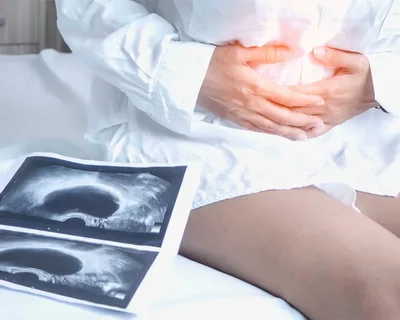Endometriosis is a challenging and often painful condition that affects millions of women worldwide. It occurs when tissue similar to the lining of the uterus, known as endometrial tissue, grows outside the uterus. This condition can lead to severe pelvic pain, menstrual irregularities, and fertility issues. While nonsurgical and surgical approaches are available to manage endometriosis pain, consulting with experienced gynecologists Pune for proper diagnosis and personalized treatment plans is essential.
In this blog, we will explore both nonsurgical and surgical options for alleviating endometriosis pain.
What is Endometriosis?
Endometriosis is a chronic and often painful gynecological condition that affects women of reproductive age. It occurs when tissue similar to the lining of the uterus, called endometrial tissue, grows outside the uterus. This misplaced tissue can be found on the ovaries, fallopian tubes, pelvic lining, and other organs in the pelvic region.
During the menstrual cycle, the endometrial tissue outside the uterus responds to hormonal changes, thickens, and sheds. However, since there is no way for this tissue to exit the body, it becomes trapped, leading to inflammation, scar tissue formation, and intense pain. Common symptoms of endometriosis include pelvic pain, painful periods, pain during intercourse, heavy menstrual bleeding, and infertility.
Diagnosing endometriosis typically involves a combination of medical history evaluation, pelvic exams, imaging tests, and laparoscopic surgery for visual confirmation. While there is no cure for endometriosis, various treatment options, including medication, hormone therapies, pain management techniques, and endometriosis surgery, can help manage symptoms and improve the quality of life for women affected by this condition.
Nonsurgical Approaches to Stop Endometriosis Pain
Endometriosis pain can be debilitating and significantly impact a woman’s quality of life. While endometriosis surgery is often recommended for severe cases, nonsurgical approaches can help manage and alleviate endometriosis pain. Let’s explore some of the nonsurgical approaches to stop endometriosis pain:
- Pain Medications: Over-the-counter nonsteroidal anti-inflammatory drugs (NSAIDs) such as ibuprofen can help relieve mild to moderate endometriosis pain. Prescription-strength pain medications may be necessary for more severe pain.
- Hormonal Therapies: Hormonal treatments aim to suppress the menstrual cycle, reduce estrogen levels, and control the growth of endometrial tissue. Common hormonal options include oral contraceptives, progestins, gonadotropin-releasing hormone (GnRH) agonists, and danazol. These therapies can help manage pain and slow the progression of endometriosis.
- Pelvic Floor Physical Therapy: A specialized form of physical therapy called pelvic floor physical therapy can assist in relaxing and strengthening the pelvic floor muscles. This therapy can provide relief from pelvic pain associated with endometriosis.
- Complementary Therapies: Some women find relief from endometriosis pain through complementary therapies such as acupuncture, yoga, and mindfulness meditation. While these approaches may not directly treat endometriosis, they can help manage pain and improve overall well-being.
Surgical Approaches to Stop Endometriosis Pain
When nonsurgical approaches fail to provide sufficient relief, surgical interventions may be recommended to manage endometriosis pain. Surgical options aim to remove or reduce the endometrial implants and lesions that cause pain. Here are some surgical approaches commonly used to stop endometriosis pain:
- Laparoscopic Surgery: Laparoscopy is the most common surgical procedure for diagnosing and treating endometriosis. It is a minimally invasive technique with a small incision in the abdomen, and a laparoscope (a thin, lighted instrument) is inserted to visualize and access the pelvic area. Surgical instruments are used to remove or destroy the endometrial tissue through additional small incisions.
- Excision Surgery: Excision endometriosis surgery is more extensive and precise than simple removal or cauterization of endometrial tissue. Skilled surgeons meticulously remove all visible and deep-seated endometriotic lesions and implants during excision surgery. This technique aims to completely excise the abnormal tissue, reducing the chances of recurrence and providing long-term pain relief.
- Hysterectomy: In severe cases or when fertility is no longer a concern, a hysterectomy may be considered a last resort. This surgical procedure involves the removal of the uterus. The ovaries and fallopian tubes may also be removed depending on the individual’s situation. Hysterectomy is generally considered when other treatment options have failed to provide relief.
Collaboration With Gynecologists in Pune
When it comes to managing endometriosis pain, seeking the guidance of experienced gynecologists in Pune is crucial. When it comes to managing endometriosis and seeking the expertise of gynecologists Pune, 9M Hospital is an excellent choice. Known for our commitment to providing comprehensive and compassionate care, we offer a team of highly skilled gynecologists who specialize in diagnosing and treating endometriosis. Here’s why collaborating with 9M Hospital can ensure you receive the best care:
- Expertise in Endometriosis
- Individualized Treatment Plans
- State-of-the-Art Facilities
- Collaborative Approach
- Patient-Centric Care
Conclusion
Living with endometriosis pain can be physically and emotionally challenging, but effective management strategies exist to provide relief. Nonsurgical approaches, such as pain medications, hormonal, physical, and complementary therapies, can help alleviate symptoms. Surgical interventions like laparoscopy, excision endometriosis surgery, or hysterectomy may be necessary in cases where nonsurgical options are insufficient. Remember to consult with qualified gynecologists in Pune to receive accurate diagnoses and optimal treatment plans for endometriosis pain. With the right approach and expert guidance, women with endometriosis can find relief and regain control over their lives.




